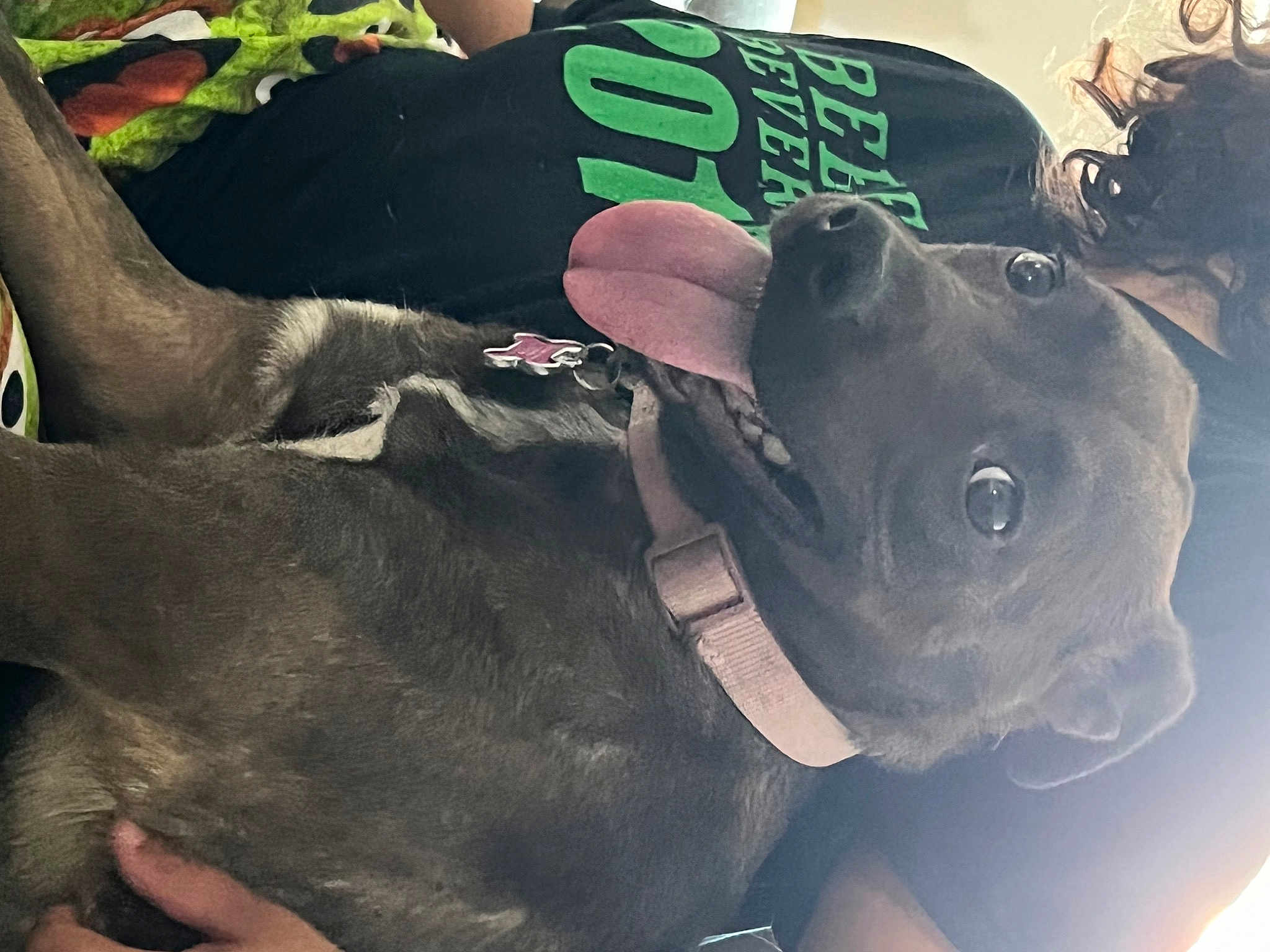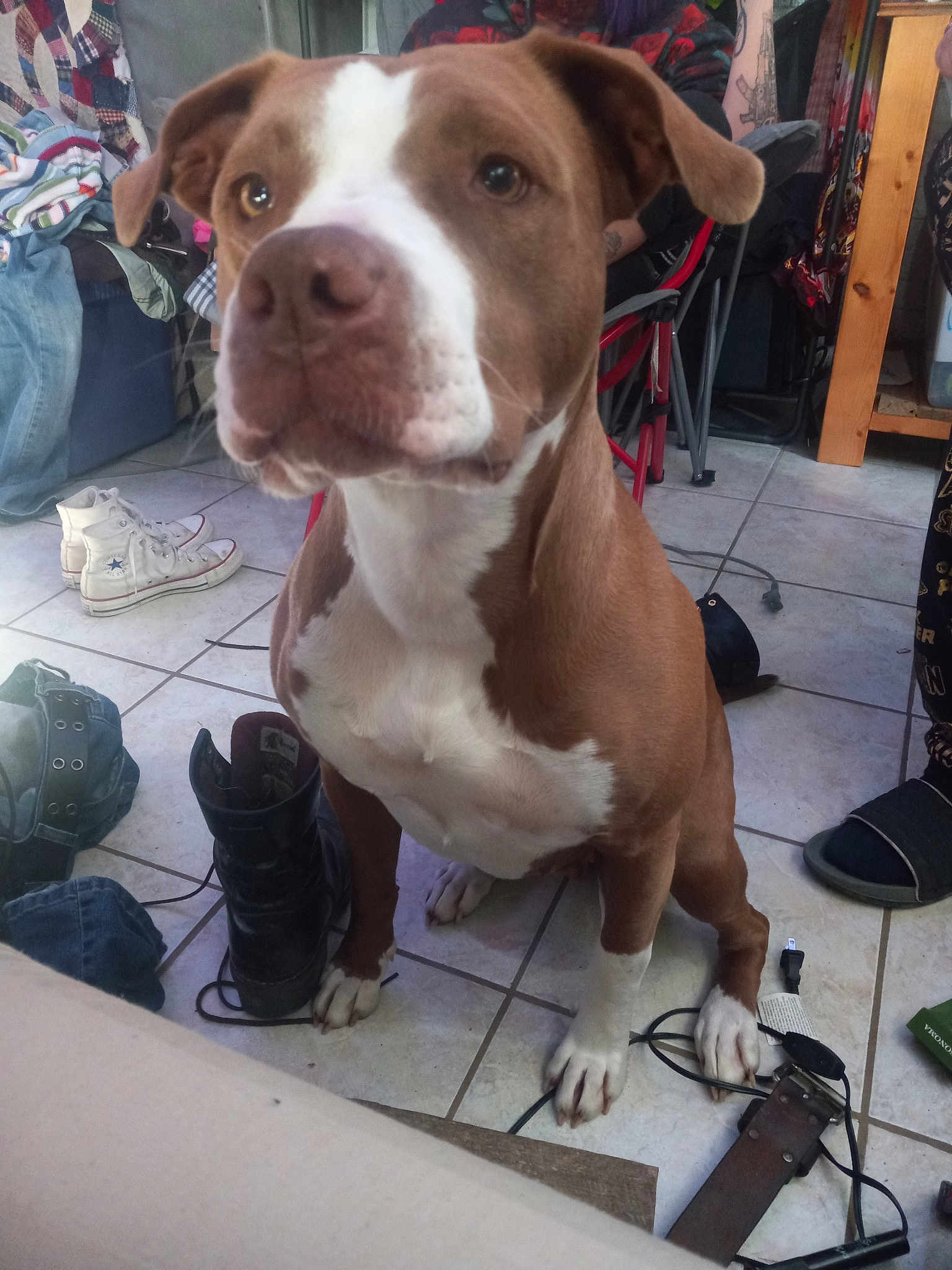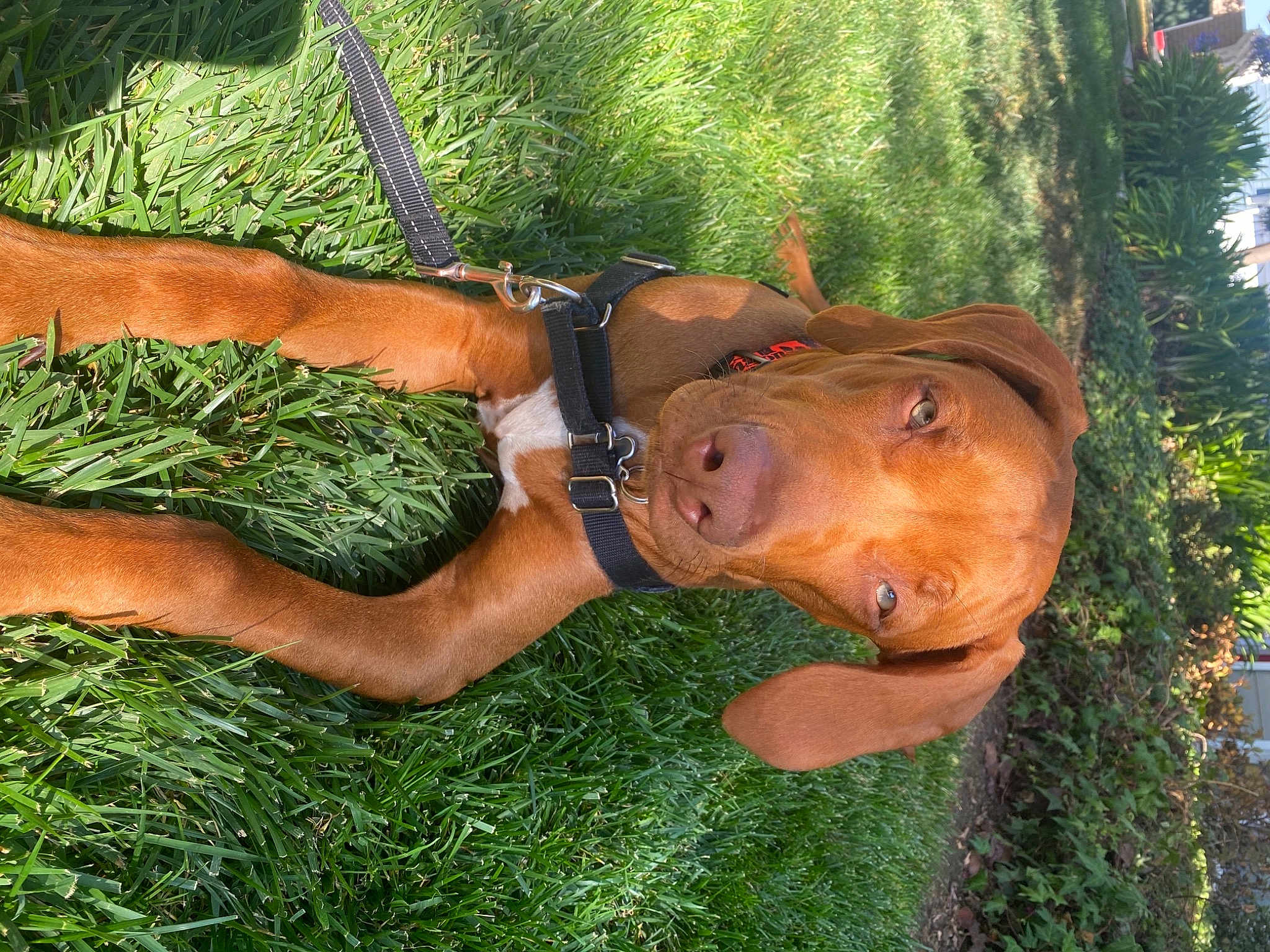"The Thai Ridgeback, with its ancient heritage and striking ridge of hair growing against the grain on its back, stands as a symbol of agility, loyalty, and elegance in the canine world."
Personality and Behavior of the Thai Ridgeback
The Thai Ridgeback, often heralded for its independence and intelligence, exhibits a personality that combines loyalty with a strong instinct for protection. These dogs are known for their keen alertness and are often used as watchdogs due to their wary nature around strangers. They form deep bonds with their families and are highly territorial, making them excellent guards for home environments. Exceptionally agile and active, Thai Ridgebacks excel in environments where they can channel their energy through physical activities.
Their behavior is a blend of independence and affectionate loyalty. While they cherish their family, they can be reserved with new people, reflecting their natural instinct to protect their loved ones. This reserved nature can sometimes be mistaken for aloofness, but those who understand the breed recognize this as part of their protective demeanor.
Training a Thai Ridgeback requires patience and consistency. Due to their intelligent and independent streak, they may sometimes exhibit a willful personality. Positive reinforcement methods, coupled with early socialization, are critical in nurturing a well-balanced Thai Ridgeback. Owners often find that their dedication pays off with a loyal, obedient, and loving companion.
"The Thai Ridgeback's independence, while challenging at times, is a testament to its undomesticated origins, requiring a training approach that blends firmness with a lot of positive reinforcement."
Meanings, History and Origins of the name Thai Ridgeback
The name "Thai Ridgeback" highlights the breed's origin in Thailand and its distinct physical characteristic – a ridge of hair running along its back in the opposite direction to the rest of the coat. This feature is unique and also seen in only a couple of other breeds globally.
The historical backdrop of the Thai Ridgeback dates back over 4000 years, making it one of the oldest dog breeds. Its primary role in ancient times was to protect homes and assist with hunting, utilizing its keen senses and agility. The breed was largely isolated in eastern Thailand, where its pure traits were preserved due to limited crossbreeding.
The preservation of the breed within specific geographic locales has made the Thai Ridgeback somewhat of a national treasure in Thailand. Its resilience in hot tropical climates, along with a short coat and a robust immune system, makes it well-suited to its native environment.
Characterized by their strength and endurance, Thai Ridgebacks were historically important for safeguarding property and accompanying long-distance travelers through rough terrains. The breed's distinctive ridge mirrors its uniqueness and has become a cultural and historic emblem within Thailand.
Popularity of the Thai Ridgeback
Thai Ridgebacks, while not the most common dog breed outside their native country, have a dedicated following among dog enthusiasts worldwide. They are cherished for their unique look and loyal nature. In Thailand, they are highly regarded, reflecting their deep historical and cultural roots.
In English-speaking countries, Thai Ridgebacks have seen a gradual increase in popularity as more people discover their impressive traits and heritage. These dogs are often featured in breed-specific dog shows and have drawn attention in canine sports due to their agility and intelligence. Additionally, the breed’s rarity and distinct appearance continue to attract admirers and breeders who seek to maintain and promote this ancient dog breed.
Globally, the Thai Ridgeback is less known compared to other popular breeds like the Labrador Retriever or German Shepherd. However, in regions where awareness grows, so does their popularity. Efforts by international breed clubs and enthusiasts are helping to spread information about the breed's qualities and needs, garnering a growing fan base.
Interestingly, Thai Ridgebacks are celebrated for their uniqueness in regions beyond Thailand, leading to increased importing and breeding programs aimed at preserving the breed’s integrity and expanding its presence globally.
Health and Care of the Thai Ridgeback
Taking care of a Thai Ridgeback involves addressing its specific health and dietary needs to support its active lifestyle. Generally, this breed is very robust and benefits from a well-balanced diet rich in protein to sustain its muscular build and energetic nature.
Common health issues for Thai Ridgebacks include hip dysplasia and dermoid sinus, a condition involving skin defects that can sometimes be serious. Regular veterinary check-ups are essential to catch and manage these conditions early. Vaccination schedules and parasite control are also crucial aspects of their health regime.
Thai Ridgebacks demand a good amount of exercise due to their active and energetic disposition. Daily walks and playtime are essential to keep them physically and mentally stimulated. Owners should also incorporate activities that challenge the dogs' intellect, like agility courses and puzzle toys.
Grooming is quite manageable for Thai Ridgebacks because of their short coat. Weekly brushing helps keep their coat healthy and reduces shedding. They are also prone to skin problems, making regular baths with appropriate canine shampoos important to maintain skin health and minimize issues like infections or dermatitis.
Training and Education of the Thai Ridgeback
Training a Thai Ridgeback is a rewarding endeavor that requires consistency and patience due to the breed’s independent mind. Early socialization is critical, introducing them to different environments, people, and other animals to curb their naturally reserved nature.
Since Thai Ridgebacks are clever, employing positive reinforcement techniques often yields the best results. Rewards-based training that includes treats, praise, and play can help in shaping desired behaviors. Commands should be clear, and training sessions should be short to keep the dog engaged.
Challenging the dog’s intellect with advanced obedience techniques or agility training can be particularly beneficial. However, owners must be cautious with firmness, as heavy-handed methods can lead to distrust or resistance. Building a rapport based on mutual respect and trust is key.
Owners may face challenges with the breed’s stubborn streak, particularly if the dog senses inconsistency. Therefore, establishing a routine and being firm yet affectionate aids in effective training. Group training sessions or classes may also contribute to improved social skills and discipline.
Choosing the right dog is akin to selecting a new family member. One's lifestyle, home environment, and the dog's inherent traits should all be considered. Prospective owners should engage with breeders or rescue centers, meeting with potential dogs to understand their behavior and needs thoroughly.
The Thai Ridgeback's blend of loyalty, agility, and historical richness makes it a remarkable choice for dog enthusiasts who appreciate ancient breeds with unique physical characteristics. At Pageant Dog, we see a significant number of Thai Ridgebacks participating in our photo contests, showcasing their elegance and charm. Choosing a Thai Ridgeback not only brings home a loyal and protective companion but also a piece of living history.






















